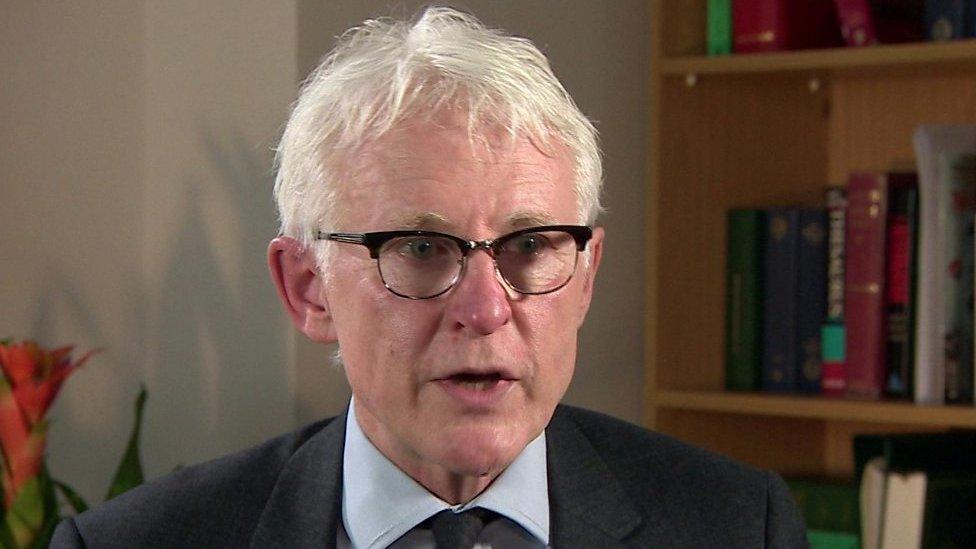No watertight solution for social care
- Published

A lukewarm response is probably a fair summary of the reaction to the government's new funding boost for social care in England.
The council tax increases had been much trailed. There was also an extra injection of Whitehall cash. But it is a short term fix which only begins to address the major policy challenges around social care.
Rather than a total of 6% increases in council tax over three years, ring-fenced for social care, English local authorities will be permitted to impose 6% over two years so bringing forward revenue.
Central government will top up the pot with £240m for next year funded from savings elsewhere in Whitehall.
There has been a cautious welcome in some quarters and robust criticism in others with reminders that, thanks to government cuts, adult social care budgets in England have been reduced significantly since 2010.
All are agreed that it is a short term measure and there remains a very broad landscape for debate about what will best meet the needs of an ageing population by the middle of the 21st Century.
There are many views about longer term reform but no apparently obvious means of achieving consensus.
There have been calls for an all-party commission to tackle the difficult issues which partisan politics on a normal electoral cycle might be inclined to evade.
The former Lib Dem Health minister Norman Lamb, along with former Health Secretaries Labour's Alan Milburn and the Conservatives' Stephen Dorrell, have called for such an all-party approach.
They discussed the possibilities with David Cameron when he was in Downing Street, but I understand the chances of the leading parties sitting down together now are remote.
Jill Colbert and Ray James tell Today there is a need for increased funding for elderly care.
The head of NHS England Simon Stevens made clear that if central government funding was tight then the NHS would get by with the money it had as long as social care resources were increased. When that did not happen in the Autumn Statement the frustration of the NHS leadership was all too clear.
With an about turn by the government looking likely, Mr Stevens noted caustically in hearings with MPs that there had been a move from "denial" to "acknowledgment" of the problem.
The NHS England chief argued that the next few years would need further integration at local level between the NHS and social care, administered by councils.
It was not however in his view simply a case of pooling money, as combining "two leaky buckets" wouldn't provide a watertight solution.
Setting out his longer term blueprint, Mr Stevens urged ministers to reconsider the so-called "triple lock" protecting pensions which, he argued, along with universal benefits such as free bus passes could not be justified if social care was still underfunded.
He called for a new triple guarantee, external for pensioners covering income, housing and care.
The former pensions minister Baroness Ros Altmann has been thinking along similar lines, indeed she had discussions with Simon Stevens when she was a member of the Cameron Government.
She argues that people simply assume the NHS will look after all their needs without realising that, unless one of the dwindling number of those covered by means-tested assistance, they will need to pay, possibly for several years of care.
Tax incentives for saving to cover long-term care costs are part of her policy shopping list.
Find out the cost of care in your area
The long-term challenge was underlined by the Chief Medical Officer Professor Sally Davies in her annual report. She noted that:
"In 2014, 8% of the total population of England were aged 75 and over; by 2039 this will have risen to 13.1%, primarily due to the size of the baby boom population, along with changes in their life expectancy. Undoubtedly, this will alter demands on health and social care services."
Professor Davies suggested that more attention should be given to the health needs of the generation born in the 1950s and early 1960s in order to prevent the onset of chronic conditions linked to lifestyle.
The celebrated economist John Maynard Keynes said "in the long run we are all dead".
But the long run can be very long. And decisions made about modernising social care will set the tone for many future decades.
- Published12 December 2016
- Published14 December 2016

- Published12 December 2016













